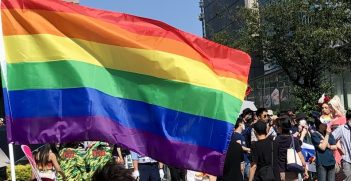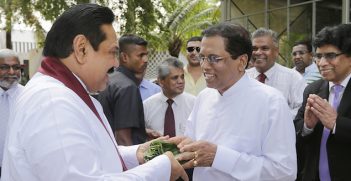Penny Wong as a Symbol for Minorities and the Marginalised

On the 31 January this year Foreign Minister Penny Wong gave a speech at King’s College in London urging the United Kingdom to confront its colonial past. She referred to her own family’s experiences with British colonialism and acknowledged that “such stories can sometimes feel uncomfortable – for those whose stories they are, and for those who hear them.”
The UK Foreign Secretary James Cleverly was dismissive in his response to Wong’s speech. The “bottom line,” he said, was that the UK has “a prime minister of Asian heritage,” a “home secretary of Asian heritage,” and a “foreign secretary of African heritage.” At first, one might be amazed by Cleverly’s indifference to Wong’s concerns. But his comments have prompted audiences to analyse Senator Wong’s character, both as an individual and as a politician. In this analysis, it is revealed that Penny Wong is someone who successfully straddles both descriptive and substantive labels of representation.
According to Snagovsky and Kerby, descriptive representation describes a politician’s ability to share personal characteristics or experiences with their constituents. For example, both Cleverly and Wong are descriptive representatives for people of colour. Descriptive representation matters because it represents values such as social inclusion and diversity in all aspects of public life, including decision-making.
By contrast, substantive representation relates to the actions of politicians and the physical content of their legislation and public policy.
Throughout her political career, Senator Wong has acted as both a descriptive and substantive representation for the groups she identifies with, both within and beyond her electorate: women, members of the LGBTQ+ community, and people of colour. Although she may not share the same characteristics as the majority of her constituents, she has worked hard to represent them and their interests through the Senate and the Labor Party.
Women’s rights
In 2013, Senator Wong was elected Leader of the Government in the Senate, and after the change of government later that year, became Leader of the Opposition in the Senate. She was the first woman to hold either of these roles, and this achievement marked a milestone in women’s descriptive representation in government.
Senator Wong’s decision-making also depicts her as a substantive representation for women. After the 2010 federal election, she implemented a policy to ensure women are considered for appointments to senior positions in corporations and government agencies. Since becoming minister for foreign affairs in 2022, she has represented Australia in ongoing efforts to remove Iran from the UN Commission on the Status of Women as a result of recent human rights violations in the country. She gave a speech at UN Women Australia’s International Women’s Day Parliamentary Breakfast where she argued that gender equality “isn’t just a right, it’s also a vital national interest.”
LGBTQ+
Senator Wong is also Australia’s first openly gay woman in both Parliament and Cabinet, and her representation of the LGBTQ+ community has been substantive. In 2012, she got into an exchange on live TV with the then- Shadow Treasurer Joe Hockey about gay parents. Hockey argued against same-sex parents, saying he aspired “to give our children what I believe is the very best circumstances, and that’s to have a mother and a father.” Wong hit back, being in a same-sex relationship with children herself, and concluded her heartfelt argument with the powerful phrase, “I know what my family is worth.” She’s also criticised the “most hurtful argument in the marriage equality debate,” the “think of the children” argument which, in its most extreme form, treats children of same-sex parents as another “stolen generation.”
People of colour
Finally, Senator Wong has represented people of colour – and particularly those with experiences of colonialism – in both a descriptive and substantive manner. She is proud of her heritage, being a descendant of British colonists in Australia on her mother’s side and Chinese immigrants to modern-day Malaysia on her father’s side. In her speech at King’s College, she shared that many people from the same Chinese clans as her father laboured in plantations and tin mines for the British North Borneo Company, while others, like her paternal grandmother, worked as domestic servants for British colonists. The decision to tell her family story to a UK audience is deliberate. Wong chose to highlight the country’s colonial past and its ongoing impact on people’s lives when, one might argue, the UK’s own leaders failed to do so.
When the foreign minister urged the UK to confront its colonial past, she was acting yet again as a substantive representative for a group she identifies with. This action is substantive for people of colour, especially those who have experienced colonialism. The UK must confront its history in a meaningful way so that future engagements with other states, and particularly with former colonies, are deeper and more meaningful than they presently are.
Although Senator Wong has worked hard for all of her constituents during her time in office, there is no doubt she is both a descriptive and substantive representation for women, the LGBTQ+ community, and people of colour, especially those with experiences of colonialism. Perhaps this is why many consider her an exceptional politician.
Isabella Gockel is in her penultimate year studying a Bachelor of Political Science and a Bachelor of International Relations at the Australian National University (ANU). She currently works as a student ambassador for the ANU College of Arts and Social Sciences, and is a member of Amnesty International Australia’s Youth Advisory Group.
This article is published under a Creative Commons License and may be republished with attribution.





